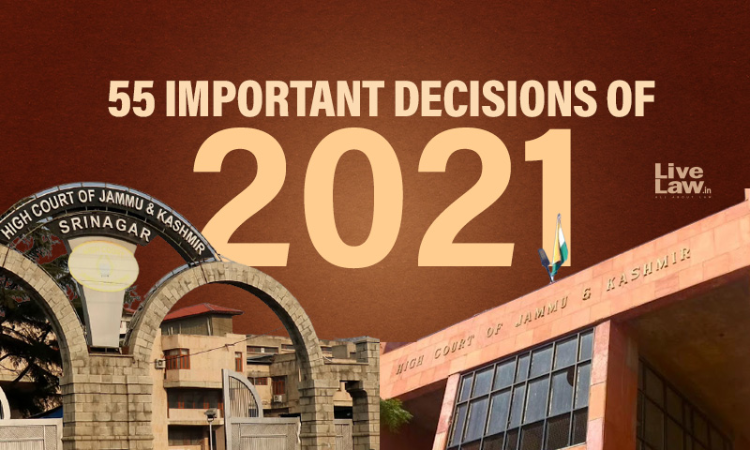Jammu And Kashmir And Ladakh High Court: 55 Important Decisions Of 2021
Sparsh Upadhyay
4 Jan 2022 9:56 PM IST

Next Story
4 Jan 2022 9:56 PM IST
As we step into the year 2022, LiveLaw brings to you a bunch of important decisions from the Jammu And Kashmir And Ladakh High Court of 2021. This digest includes 55 important orders and judgments spread across 10 categories.Criminal Cases 1. Keeping Accused In Custody As Offences Alleged To Be Committed Are 'Serious' Would Amount To Inflicting Pre-Trial Punishment: Jammu & Kashmir...
